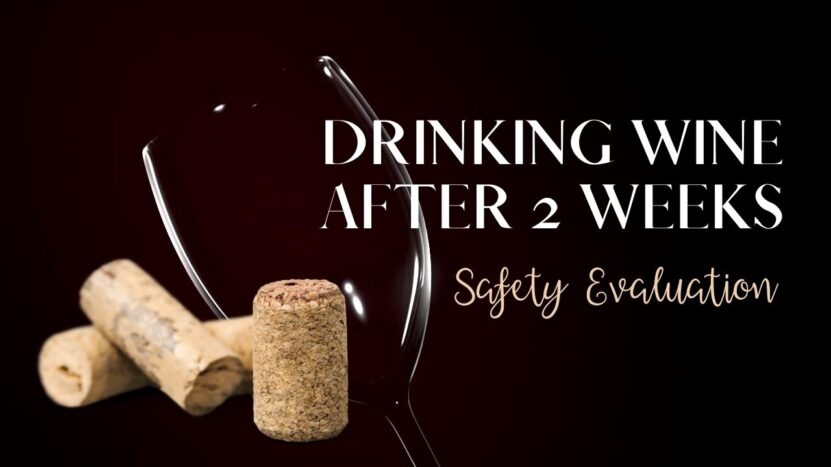Whether you’re a casual wine drinker or a seasoned connoisseur, you’ve likely pondered the longevity of an opened bottle. The question that often lingers is: Can you drink opened wine after 2 weeks? The short answer is yes, you can, but there’s more to it. In this article, we’ll explore the nuances of wine preservation, flavor profiles, and health implications, all in a bid to demystify this dilemma.
The Science Behind the Shelf-Life

Understanding the shelf-life of opened wine involves a bit of chemistry. Once uncorked, it gets exposed to oxygen, and the process of oxidation begins. Oxidation can be both a friend and a foe to your favorite red or white. In moderation, it helps develop complex flavors and aromas. However, excessive exposure leads to spoilage, making the wine lose its appeal.
So, can your opened wine last for two weeks? It can, but its condition will depend on several factors:
Type
The type can greatly influence its lifespan post-opening. Generally, the lifespan ranges as follows:
- Sparkling: 1-3 days
- Light White and Rosé: 5-7 days
- Full-Bodied White: 3-5 days
- Red: 3-7 days
- Fortified: 28 days and above
These figures indicate optimal times for enjoying the best flavor profiles of the wines. After two weeks, most of them, except fortified ones like Port or Sherry, will have significantly lost their original character.
Storage Conditions
Proper storage is vital in extending the lifespan of opened wine. When not drinking, it’s best to record the bottle tightly and store it in a cool, dark place, preferably in your refrigerator. The low temperature slows down the oxidation process.
The Taste Factor: What Happens To Wine Over Time?
Drinking wine is as much about the experience as it is about the taste. After two weeks, even if it’s not harmful, the wine might not deliver the palate experience you desire.
Flavors and Aromas
An opened wine bottle evolves with time. Exposure to oxygen can enhance its aroma and flavor complexity in the first couple of hours or days. But beyond that, the flavors start to fade, and the wine can become flat, losing its original aroma and taste.
Visual Appearance
Color is a crucial aspect of wine appreciation. Over time, its color can change due to oxidation. Red can turn brownish, and white may darken and turn yellow. If your two-week-old opened bottle exhibits such a change, it’s an indication that it might not taste as good.
Health Implications: Is Two-Week-Old Wine Safe?
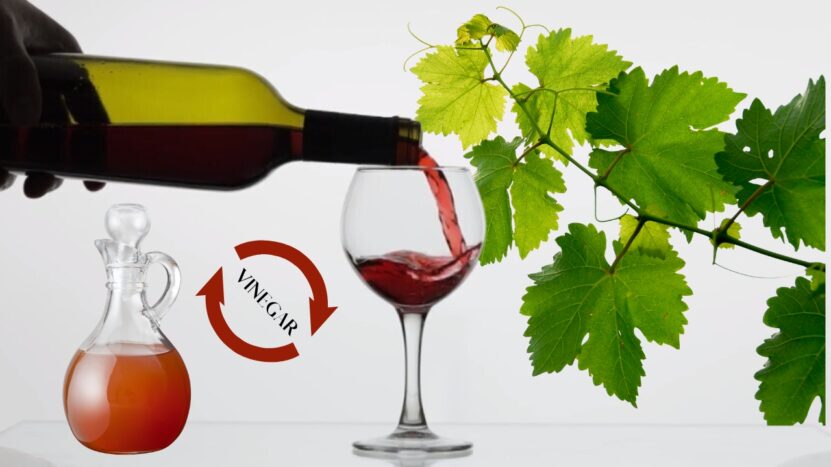
An opened bottle, even after two weeks, is usually not harmful to drink. When it goes bad, it turns into vinegar, which, while not pleasant to drink, is not harmful.
However, it’s essential to note:
Presence of Mold
On rare occasions, if the bottle was stored in poor conditions, you might observe mold growth. If this is the case, it’s best not to consume it.
Allergies and Intolerance
For people with sulfite allergies or histamine intolerance, older wine might pose a problem, as these compounds can increase as wine ages.
Tips to Extend the Life of Opened Bottle
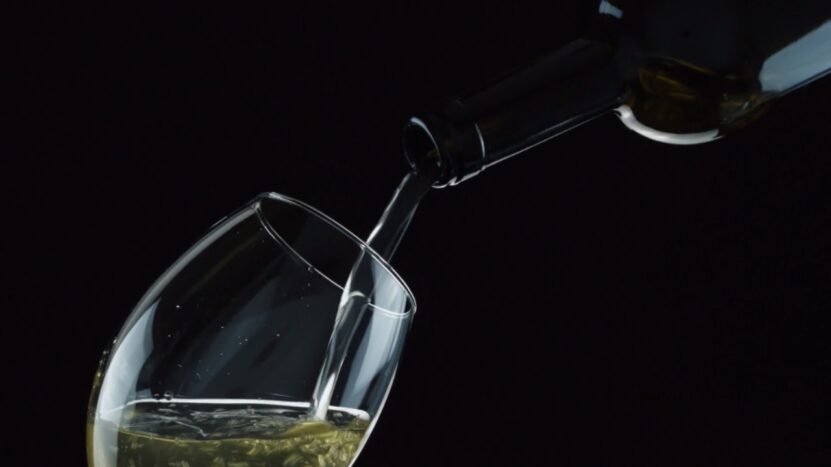
If you’re keen on savoring your wine for longer than a week, these tips can help:
- Recork Promptly: Minimize the bottle’s exposure to air. If you can’t get the original cork back in, a wine stopper will do the job.
- Refrigerate: The fridge is not just for white wine. Red type can benefit too. The cold temperature slows down the oxidation process.
- Use a Wine Preserver: These tools, like vacuum pumps or inert gas systems, can help maintain wine’s freshness by reducing its contact with air.
Is Drinking Old Wine a Faux Pas?
One might wonder if drinking an older bottle of opened wine is socially unacceptable or, worse, a wine-drinking faux pas. The truth is wine consumption is subjective and varies greatly from person to person.
If the bottle doesn’t exhibit mold or an off smell, and you find its changed taste agreeable, then by all means, enjoy your two-week-old bottle. However, when it comes to serving guests or attending a gathering, it’s best to offer fresh wine to ensure an optimal tasting experience. Remember, what you enjoy personally might not suit the palates of others.
Cooking with Old Wine
Should you decide that your old wine isn’t suited for drinking, consider using it for cooking instead. Culinary practices often involve it as an ingredient, especially in sauces, marinades, or stews. The alcohol in it evaporates while cooking, leaving behind a rich, complex flavor. It’s an excellent way to make sure your old wine doesn’t go to waste.
Do remember, though, that if it has turned to vinegar, it might alter the taste of your dishes. As a rule of thumb, if you wouldn’t drink it, you probably shouldn’t cook with it.
Can You Prevent It from Going Bad?
Despite best efforts, you can’t stop the inevitable oxidation process that occurs once a wine bottle is opened. But you can slow it down. Using preservation tools and proper storage techniques will buy you some extra time. If you frequently find yourself with leftover wine, consider investing in a preservation system. It’s an investment that will undoubtedly pay dividends for your palate.
What About Boxed Wine?
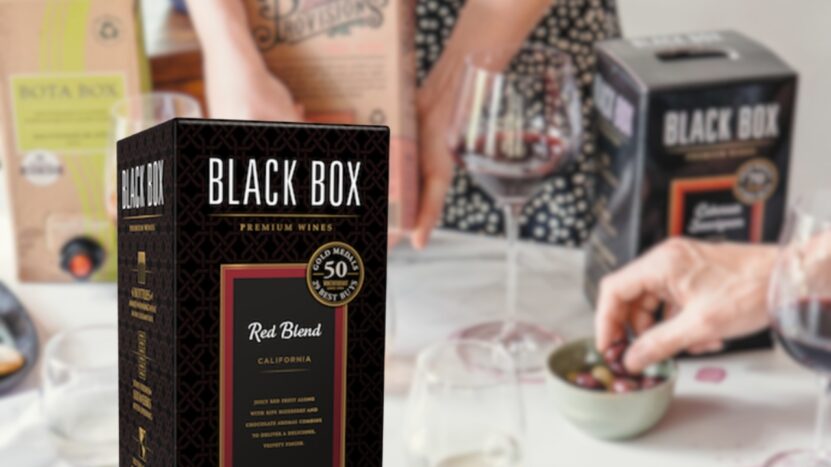
Boxed wine presents a unique case. Thanks to its design, every pour allows almost no air to enter the internal bag. As a result, boxed wines can last up to four to six weeks after opening. They’re a great option if you’re a casual drinker who only enjoys a glass or two at a time.
If you’re planning a trip to Illinois in 2023, make sure to explore the enchanting wineries that this state has to offer, boasting some of the best wine experiences you won’t want to miss.
Final Words
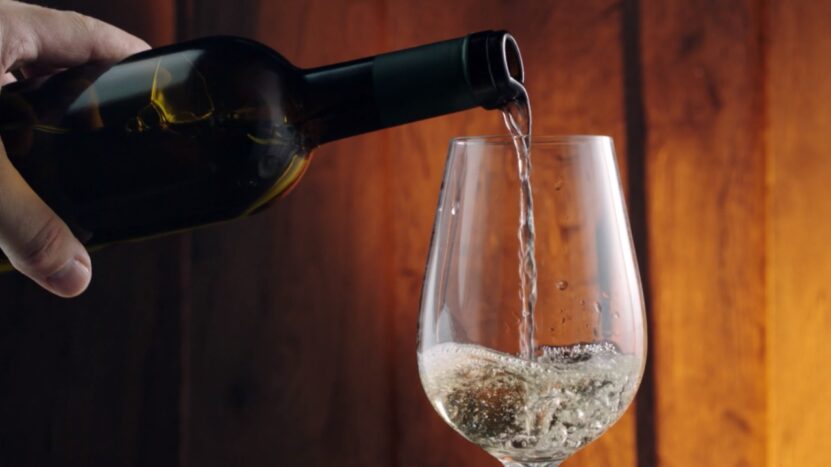
To wrap it all up: Yes, you can drink opened wine after two weeks. However, be prepared for a different tasting experience, as its flavor profile and aroma will have changed significantly due to the process of oxidation. The health risks are minimal unless you notice mold or have specific allergies. To get the most out of your opened bottles, proper storage is key.
So, the next time you uncork a bottle, remember: wine is best enjoyed fresh. But if you can’t finish it in one sitting, follow the storage tips, and don’t be afraid to sip the leftovers.

